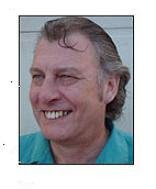 Part Three of a series of six posts.
Part Three of a series of six posts.See previous posts here and here. See next post here.
On page 207 of his book Orwell - The Life D.J.Taylor writes:
…whose Catalan dialect he [Orwell] still had great difficulty in comprehending…
Catalan is emphatically not a dialect. Catalan is very much a proud, living, thriving language; I hear it spoken, shouted and sung every single day. I read it everywhere, every day.
There are an estimated 16 million Catalan speakers worldwide - the population of Catalunya is 7.5 million - and a sizeable, mainly immigrant, proportion of those do not speak Catalan.
The celebrated author Patrick O’Brian understood this well, referring to Catalan as the lingua franca of Napoleonic seafarers in the western Mediterranean. Contemporary English born Catalan writer Matthew Tree also understands the sometimes fraught relationship between Catalan speakers, Spanish speakers and interlopers who insist on calling Catalan a dialect.
It is the kind of insensitive error which costs lost sales in Catalunya, needlessly raises hackles, and lends succour to unreformed franquistas and centralists.
I've searched Homage to Catalonia thoroughly and not found a single mention of the word 'dialect'.
I've read, and re-read, Orwell's letters and essays and have never once come across Orwell describing Catalan as a 'dialect'.
And, though Orwell reports, "having the usual struggles with the Spanish language" (H.T.C. page 14), I haven't been able to find any mention of Orwell's 'difficulty' with Catalan.
Orwell simply says: "Things were not made easier for me by the fact that when my companions spoke to one another they generally spoke in Catalan. The only way I could get along was to carry everywhere a small dictionary which I whipped out of my pocket in moments of crisis." H.T.C. page 15.
Here are Irish writer Colm Tóibin’s thoughts about Catalan from the opening chapter of his book Homage to Barcelona:
"Catalan, I discovered, isn’t a dialect of Spanish, nor of Provencal, although it has close connections with both. Some words (casa for ‘house’, for example) are the same as in Spanish; other words (mengar for ‘eat’) are close to French or Italian. Most of the words for fruit, vegetables and spices are completely different from the Spanish words. The way of forming the past simple is like no other language; the way of forming the past continuous is more or less the same as in Spanish; the way of forming the past subjunctive is the same as in Italian.
Catalan is a pure Latin language. There are no Arabic sounds. Thus the pronunciation of the word ‘Barcelona’ does not have the ‘th’ sound as used in the series Fawlty Towers. Catalan sounds are harsh and guttural. The language is full of short, sharp nouns such as cap for ‘head’, fill for ‘son’ and clau for ‘key’; and similar-sounding verbs: crec for ‘I believe’, vaig for ‘I go’ and vull for ‘I want’. "
Speaking and writing Catalan was illegal during the dictadura (dictatorship).* As was, for a while, sign-language. Deaf and/or mute persons were obliged to communicate through writing in castellano. Which is why you'll come across photos of deaf mutes wearing little chalkboards around their necks. Illiterate deaf mutes existed in a silent purgatory.
Many of Franco's followers referred to Catalan as the 'language of curs', and Catalans were often dismissively referred to as polacos (Poles)**. Which is why the most popular Catalan satirical TV shows are called Polònia and, the football spinoff, Crackovia.
Franco's followers referred to castellano as the 'Christian tongue' - ignorant of the irony that Spanish has absorbed more Arabic (i.e. non Judeo-Christian) words than any other modern language. Spanish is a mongrel language - not Catalan - just as is English.
But Franco did not just proscribe the use of Catalan (and the public demonstration of Catalan folkloric traditions) he wilfully tried, though failed, to eradicate it. He tried to dilute it through miscegnation - by encouraging inward migration from Spain, mainly Andalucia and Murcia, and using Catalunya as a sort of open prison for banished Spanish petty criminals***, while at the same time populating the territory with hardline priests, missionaries and teachers.
And he failed. One of the most inspirational elements of Spain's reconstruction since the dictatorship has been the magnificent re-flowering of the Catalan language.
"Catalan is a pure Latin language," says Colm Tóibin, and I agree.
"But I defy anyone to be thrown as I was among the Spanish working class — I ought perhaps to say the Catalan working class, for apart from a few Aragonese and Andalusians I mixed only with Catalans — and not be struck by their essential decency; above all, their straightforwardness and generosity." Orwell said (H.T.C. page 15), and I agree.
VISCA CATALUNYA!
*Some texts in Catalan were published during the dictatorship - but what could and couldn't be published was strictly regulated.
** Many Barcelonins at the time referred to the Communists and their Soviet advisors as the Chinese - so it was possible to hear conversations describing the conflict as one between Chinese and Poles!
** A popular character in our local bar was banished to Barcelona from a village near Jaén in Andalucia when he was 12 years old in the 1960s because he had taken a shot at the local latifundista (estate owner) with his catapult. His widower father, with four younger boys to care for, was given the choice: either spend six months in prison or your oldest son is banished to Cataluña. His son was put on the train the next morning with a cardboard suitcase and 30 pesetas in his pocket - he's lived here ever since.


No comments:
Post a Comment